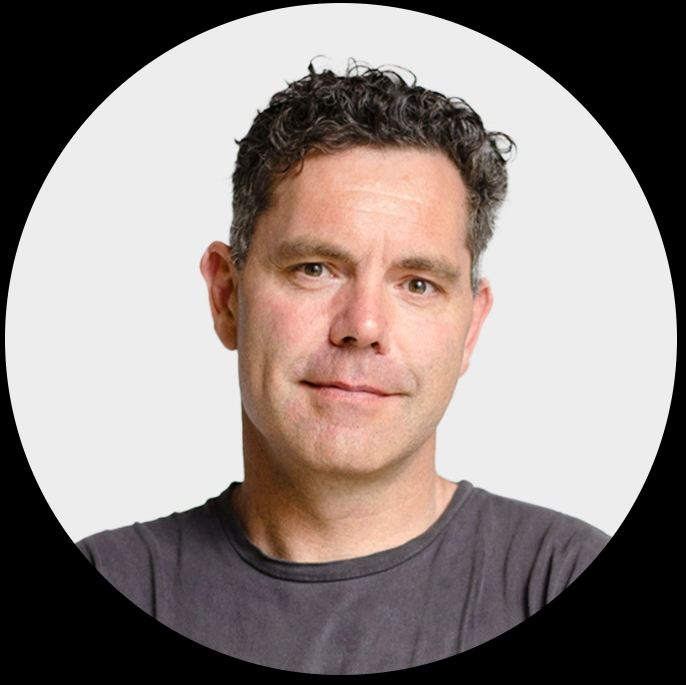Mike Brough, CEO of DOT loves Data
My first job was delivering newspapers for the Daily Telegraph in Napier. I was 11 years old, getting paid $17 a week to deliver about 80 papers, six days a week. It taught me the value of reliability and a good work ethic early on.
I had a blue-collar upbringing in Napier and studied at Massey University in Palmerston North. The first time I went overseas was during the interview process for my first career job. When I got the offer, I couldn’t believe my luck.
That job was with Andersen Consulting (now Accenture). I joined their graduate programme in 2000 and spent six years with them across Wellington, Sydney, and London.
It was my introduction to the world of large multinational corporates. The training was great, and I thrived in the structured and competitive environment. Like many professional services firms, the career path was clearly mapped out—if you worked hard and had a bit of luck, you progressed quickly.
Beyond giving me confidence, it provided a strong technical grounding that I still lean on today. I learned to code, analyse data, and run large-scale IT projects—all incredibly valuable skills for leading a data-focused business.
I joined Kiwibank in 2006. It was growing rapidly, and opportunities were everywhere. I was in my late 20s and found myself in a senior management role that, in hindsight, I wasn’t ready for.
I had the technical skills but lacked leadership experience and often felt like an imposter. I’d avoided public speaking and leadership roles at school and university, so there was a steep learning curve.
Don’t wait until you have to be a strong communicator—develop those skills early. I avoided public speaking and putting myself out there for years and had to play catch-up once I moved into leadership roles. Being able to lead, communicate clearly, and connect with people is essential for any CEO, and there are plenty of ways to build those skills outside of your day job.
I’ve worked across a wide range of jobs, industries, and countries. I’ve worked in hospitality, a pulp mill, an engineering workshop, painted houses, milked cows, and crutched sheep. I also spent time in consulting, banking, and data/tech.
All of those experiences helped shape how I lead today. I think having a variety of jobs early in your career is a real asset. It helps you relate to people, understand different perspectives, and stay grounded—no matter what role you end up in.
Try to get as much experience as possible across different roles and functions. The more you understand the full picture of how a business works—what drives someone in sales versus someone in operations—the better prepared you’ll be to lead a whole organisation.
Around the time I was finding my feet as a senior leader, I also realised I was tiring of corporate life. My wife had just had our fourth child and I wanted more control over my time. I was ready to take a risk. So, ten years ago, I co-founded Dot Loves Data, and two years later, launched Octave. I figured if it didn’t work out, I could always return to the corporate world.
I stepped into the CEO role as the company grew and the role evolved. It wasn’t planned in the traditional sense, but I gained the right mix of experiences along the way. I think that’s becoming more common—modern leadership careers are rarely linear, and that’s a good thing.
If I’m part of a business that’s ambitious, has great people, and is doing something innovative with technology or data, then I’m all in. I’m not wedded to a specific title—I'm happy to play whatever role leads to the best outcome for the team. Right now, that role happens to be CEO.
I’ve always loved team sports and the thrill of competing. There’s something special about getting the right mix of people, building a strong culture, and working hard together toward a common goal. I see business in exactly the same way—and that’s why I love it.
If you put talented, motivated people in a strong environment with the right support and training, they can achieve great things quickly. It’s a principle I’ve carried with me.
Don’t be afraid to take a risk. Careers are becoming less and less linear, and with the rise of technologies like AI, there’s never been more opportunity to think differently and carve your own path. If you back yourself, stay curious, and surround yourself with good people, things tend to work out.
Stay calm and carry on. There have been a few surprises that has caused some lost sleep. I think that is the nature of the job, it can be stressful, and you can't be too hard on yourself.

